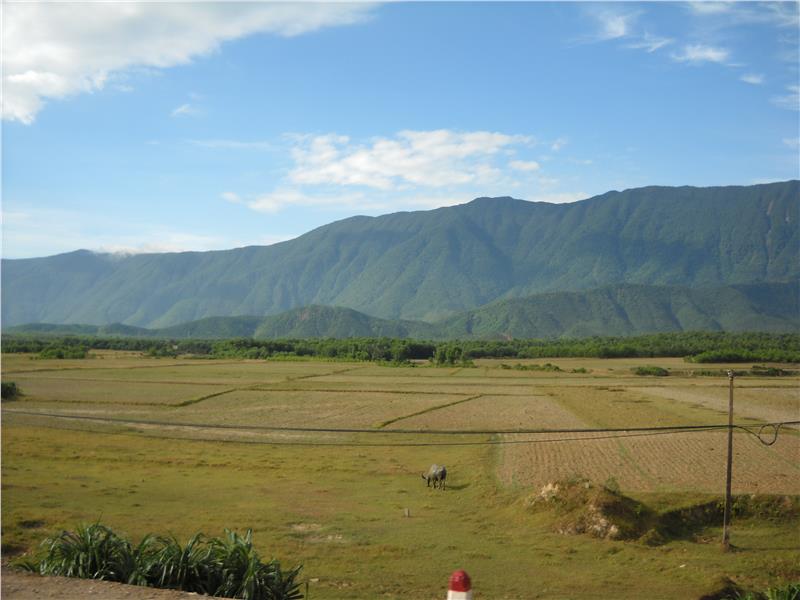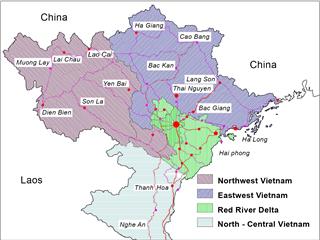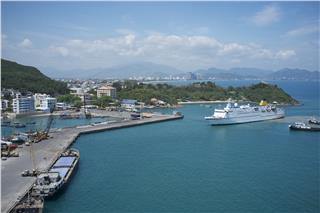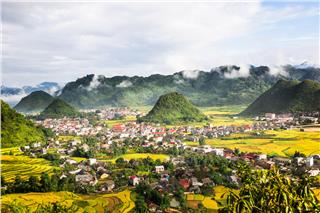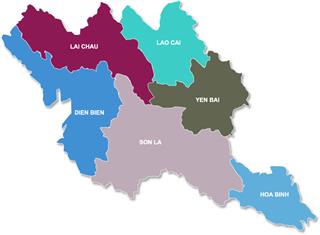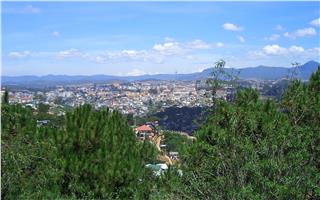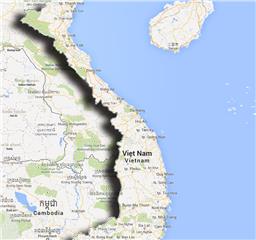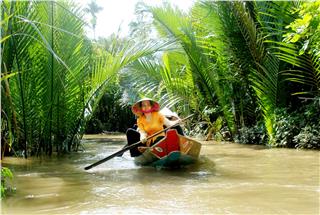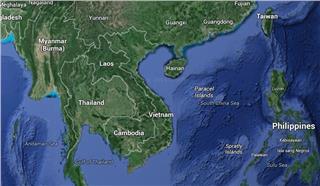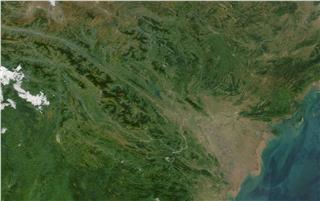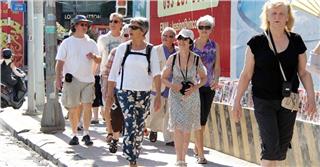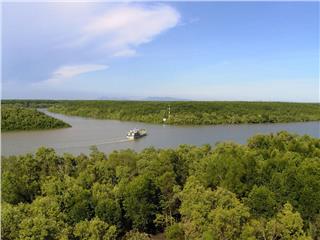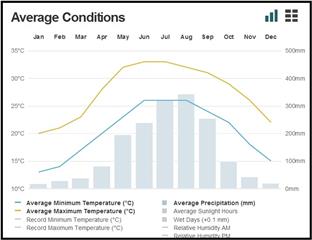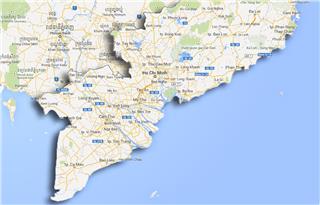Weather in North Central Coast Vietnam is dry and hot with Southwest wind. With a long coastline, it is characterized by cool ocean breeze. Because the land area is limited by Truong Son Mountain range, the region has two distinct seasons: dry and rainy.
North Central Coast is the start point of Truong Son Mountain Range (Annamite Mountains). The eastern slopes of this range runs down the Gulf of Tonkin. The region has a narrow width with complex terrain dissected by rivers and seaward mountains suach as Hoang Mai Mountain in Nghe An, Hong Linh Mountain in Ha Tinh, Ma River in Thanh Hoa, Ca River in Nghe An, etc. The structure of terrain includes sand dunes, coastal area, followed by a narrow strip of plains. In the west of the region, there are midlands and mountains of North Truong Son Mountain Range.
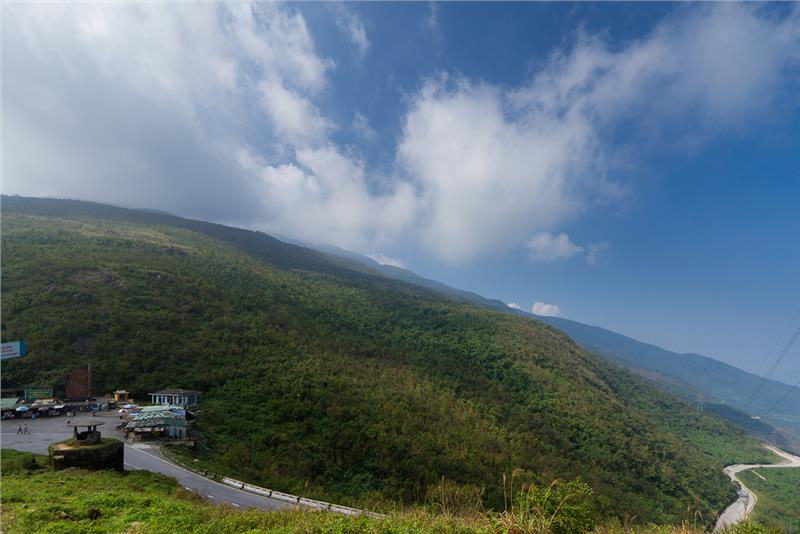
To the north of North Central Vietnam are Red River Delta and Central Uplands; to the south is South Central Coast Vietnam; to the east is the South China Sea; and to the west are Laos and Cambodia. The region is surrounded by mountain ranges stretching from the west to the est. For this position, the climate in North Central Coast Vietnam is harsher than that in Northern Vietnam and Southern Vietnam. From north to south, the region has two main sub-regions including coastal and highland with plenty of mountains and rivers, creating beautiful landscapes and seascapes in this region. Thus, weather in these regions is different from each other from the east to the west and from the north to the south.
North Central Coast Vietnam is the part of North Hai Van Pass. The region is influenced by cold weather in northern part and hot dry period caused by Foehn. In winter, due to the regional terrain runs along the coast of South China Sea in northwest – southeast wards, the region have to face northeast monsoon. Yet, this Truong Son Mountain Range is relatively high in the west and in the south, thus, the northeast monsoon is often prevented. In summer, when the active southwest monsoon blowing from the Gulf of Thailand across the vast continent to the Annamite Mountains, causes heavy rains in the west slope, but continues passing Truong Son Mountain blow into the region. The southwest monsoon triggers hot dry weather in North Central Coast. The temperature sometimes reaches up above 40°C, with relative humidity about 50÷60).
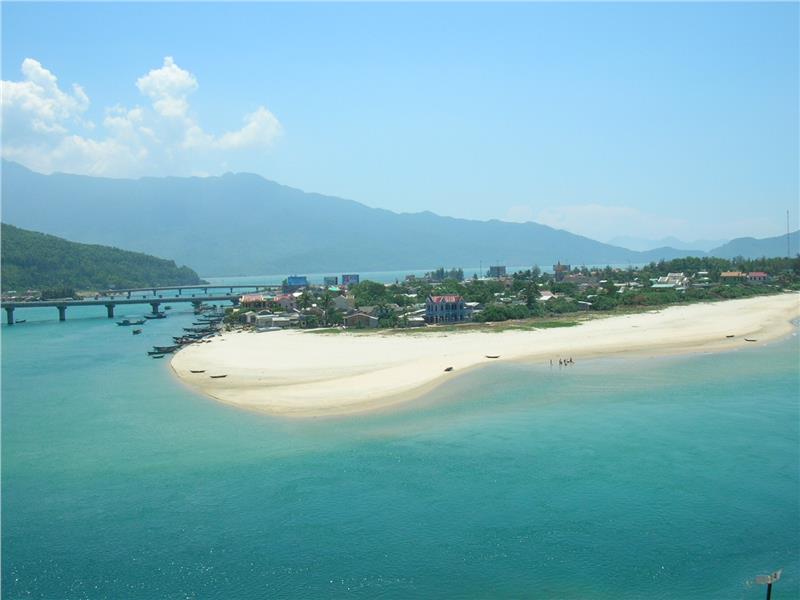
In North Central Coast Vietnam, the area consists of six provinces in the north of Hai Van Pass. These provinces stretch from the east to the west, forming a narrow central part. The narrowest area in the region is about 50 km wide (in Quang Binh Province). North Central Coast is characterized by mountain ranges in the west, especially northern part of Truong Son Mountain range (Annamite Range) with rugged terrain, and plain areas with an area of over 6000 sq. km. Among those plains, delta in Thanh Hoa, the largest delta in Central Vietnam, obtains sediment from Ma River and Chu River, accounting for nearly half of the area. As being located near Northern Vietnam most, weather in North Central Coast is often affected by the weather in Northern Vietnam. In winters, the region witnesses the northeast monsoon that carries steam from the ocean. Thus, cold and rainy weather is typical in the part in winters. Yet, the difference between the weather in North Central Vietnam and that in Northern Vietnam in winters is that winter in the former is wet, while the latter is dry. In summers, North Central Coast is described with dry and hot weather, as Foehn wind from Laos affects this region. Temperature in summers may reach 400C in the peak, while the humidity is quite low. In short, Vietnam weather in Central Vietnam is characterized by two different seasons during a year: rainy season and dry season. It is difference in topography that forms distinct climate in this region, and create beautiful landscapes.
